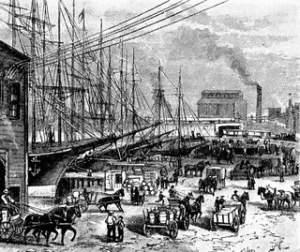Creditor Rights encompass the body of laws and rules that protect the ability of creditors, generally defined as persons owed a debt, to collect on debts. Creditor tools include obtaining a legal judgment against a debtor, placing liens on debtor’s property, foreclosure or repossession of a debtor’s property, garnishing a debtor’s money such as bank accounts or wages, or setting aside particular transactions by a debtor as a fraudulent conveyance. Creditors often have varying rights as against each other when trying to enforce a judgment against the same debtor: these are often referred to as creditor priorities.
Collection in the legal sense (as opposed to internal account receivables policy and procedures of companies, for example) involves the legal methods used by creditors, generally defines as persons owed a debt, to collect on that debt. Collection tools include obtaining a legal judgment against a debtor, placing liens on debtor’s property, foreclosure or repossession of a debtor’s property, garnishing a debtor’s money such as bank accounts or wages, or setting aside particular transactions by a debtor as a fraudulent conveyance.
Contracts are written (or unwritten/verbal) agreements between two or more parties to a transaction, the intent of which is to create one or more legal obligations between them. Contrary to popular belief, enforceable contracts do not have to be in writing; however litigation is often much more involved, expensive, and uncertain in the absence of a proper written contract outlining the rights and responsibilities of the parties.
Consumer Protection involves the whole body of laws and organizations, as a form of government regulations, designed to protect the rights of consumers in transactions in the marketplace. Consumer-friendly laws protect against unfair credit and collection practices and business dealings, for example. Consumer protection organizations, such as the Federal Trade Commission (federal) and the Better Business Bureau (nonprofit), provide information to consumers and and help facilitate consumer complaints. Many consumer protection laws give consumers a private right of action against individuals or businesses rather than just a government enforcement of the law
Back to Practice Areas

